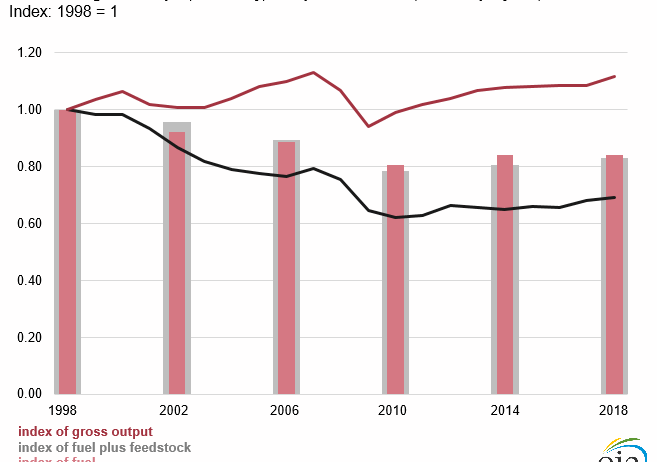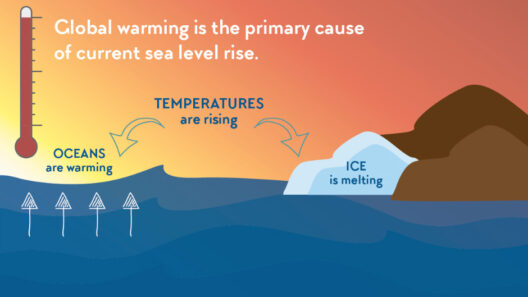The escalation of climate change is fundamentally intertwined with the processes of manufacturing and consumption. Every product that consumers purchase carries a hidden cost—an ecological debt incurred not only during its production but also throughout its entire lifecycle. As stewards of the planet, it is imperative to examine how our choices in manufacturing and consumption exacerbate this critical issue and explore avenues to mitigate the environmental impact.
Manufacturing forms the backbone of the modern economy, providing employment, infrastructure, and innovation. However, this sector is also one of the largest contributors to greenhouse gas emissions. In fact, it is responsible for nearly one-quarter of global emissions. Factories, ranging from textile mills to automobile plants, release a myriad of pollutants that saturate the air, soil, and water. The energy sources utilized, predominantly fossil fuels, further compound the crisis. Transitioning to renewable energy sources such as wind, solar, and hydroelectric power is not merely beneficial—it is essential for sustainable practice.
The crux of the matter lies not just in manufacturing processes, but in the consumption patterns of individuals. The global economy thrives on a culture of incessant consumerism—one driven by the relentless pursuit of new products. This culture fuels a cycle of overproduction, waste, and environmental degradation. In numerous cases, products are designed with obsolescence in mind, compelling consumers to discard items sooner than necessary. Such behavior results in mountains of waste that contribute to pollution and landfill overflow—issues that disproportionately impact marginalized communities.
Moreover, the carbon footprint associated with transporting products around the globe adds a further layer of complexity to the consumption narrative. The logistics of transporting goods require significant energy input, most often in the form of fossil fuels. As products traverse oceans and continents, the environmental ramifications escalate, culminating in an unsustainable model that favors convenience over ecological balance. The interconnectedness of a globalized economy cultivates a phenomenon whereby local ecosystems suffer from decisions made far away.
It is crucial to recognize the role of policy in shaping manufacturing practices and consumption behaviors. Governments possess the unique ability to incentivize greener alternatives through legislation, subsidies, or taxation. For instance, implementing stricter emissions standards obliges manufacturers to adopt cleaner technologies. Similarly, incentivizing consumers to choose sustainable products can create a paradigm shift—one that prioritizes the planet over profit.
Education occupies a pivotal role in reframing the consumer’s climate mindset. Awareness about the environmental consequences of manufacturing and consumption is often sparse. By comprehensively informing inhabitants about the lifecycle of products—starting from raw material extraction to end-of-life disposal—societies may cultivate more conscious consumers. The power of choice lies with the consumer, and informed decisions can lead to a formidable collective impact.
Furthermore, convening communities around sustainable practices can foster a collective commitment to reducing the individual and shared carbon footprint. Initiatives such as local farmers’ markets or community repair workshops underscore the significance of locality in combating climate change. They allow consumers to engage directly with their community’s manufacturing practices, thereby promoting a culture of sustainability and accountability.
Consumer behavior is not monolithic, and there exist opportunities for innovation in greener consumption. The rise of the circular economy epitomizes a transformative approach that seeks to redefine product end-of-life paths. Instead of relegating items to landfills, the circular economy encourages the reuse, repair, and recycling of products. This concept challenges the throwaway culture and promotes a sustainable framework that benefits both economies and the environment.
Engaging with local artisans and small-scale manufacturers also aligns with sustainability. These practices promote reduced transportation emissions, support local economies, and often utilize sustainable materials. More than just a trend, it symbolizes a broader movement that champions ethical consumption over mass production. It embodies the notion that dialogues surrounding environmental concerns can stimulate economic vitality while simultaneously addressing climate challenges.
Moreover, innovations in technology offer promising solutions to mitigate adverse manufacturing and consumption effects. Advancements in biodegradable materials, for instance, present alternatives that do not harm the environment. Similarly, smart manufacturing technologies optimize production processes, minimizing waste and energy use. These innovations underscore a hopeful trajectory—one where technology and sustainability coalesce to forge a greener future.
International cooperation is paramount when addressing the global nature of climate change. Manufacturing and consumption are not confined by geographical borders. Climate action requires synergy amongst nations to share innovations, implement universal standards, and drive collective change. Global initiatives like the Paris Agreement reflect an acknowledgment that climate degradation is a worldwide dilemma necessitating a united approach.
In conclusion, the consumer’s climate is a multi-faceted issue that hinges on the reciprocal relationship between manufacturing and consumption. To combat the climate crisis effectively, both sectors must evolve. Consumers, corporations, and governments alike need to shift perspectives—understanding that sustainable practices are not merely options, but imperatives in the fight against climate change. Thus, a congruent effort can yield a transformative change, ensuring that the health of our planet is prioritized in the manufacturing and consumption processes, ultimately securing a sustainable legacy for future generations.








